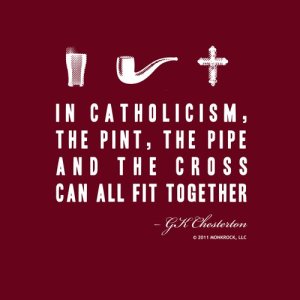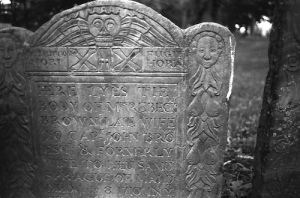http://rorate-caeli.blogspot.com/2013/09/full-text-of-popes-letter-to-atheist.html

In recent days much attention has been given to the pope’s admission that Atheists could end up in heaven if they follow their consciences. Far from being the heretical ideas of a rogue pope, this teaching fits firmly within Catholic teaching.
To unwrap this traditional teaching, it is first necessary to understand the Church is not absolutist in the understanding of the law. The law of God was made to guide us to communion, not to be an arbitrary list of rules. Related to this is that God will never require the impossible from us. He knows who we are and desires our salvation, so he will never put it out of reach by a requirement that cannot be fulfilled. Within the context of these two truths, we can see how layers of salvation can be added to the core of those who are firm Catholics.
Starting with the core, we Catholics understand ourselves to have the fullness of truth. This truth leads us into communion with God, but we don’t hold it exclusively. For instance, baptism into the body of Christ is a truth we hold as necessary for salvation, but other Christian groups also understand and practice baptism. Hence the first layer of people who might attain salvation are those who are baptised into the Christian faith, but who through no fault of their own don’t hold the fullness of truth. A fourth generation Baptist might not be required to hold Catholic teaching to enter heaven because they might never have had Catholic teaching explained to them. To require knowledge of the way Catholics believe might be an impossible requirement for such a person. This doesn’t deny that they do hold some of the truth, such as the truth of the necessity of baptism.
Adding on another layer, those of other faiths who are seeking God might also be saved, even without baptism. Their desire for knowing God and loving their neighbor could be enough to save them, especially if they haven’t heard the Gospel or if those who have shared the Gospel did so in a very poor way. The supposition is that if they knew of the necessity of baptism, they would have had themselves baptised. Since they didn’t know how important it is, it is not a necessity for them.
Yet another layer are Agnostics and Atheists. If the sexual scandal of Priests has driven them away from the Church, it might be the fault of priests and not of their own that they don’t believe. Again, as long as they are seeking to follow their consciences and striving to help their neighbor, they might be saved because God doesn’t require the impossible of them — and with as horrible as the scandal was, it might very well be impossible for some Agnostics or Atheists to believe in God.
Each layer of salvation granted holds to less of the truth, but each layer can still be saved because God desires that all people have salvation. But this raises the question: why teach people the Gospel if it puts a greater responsibility upon people to adhere to more truth? The more Catholics share their faith, the less likely it is that others will still fall into the category of “disbelief through no fault of their own”.
The answer is that God’s law brings us into greater communion here on earth, not just in heaven. The moral and faith teaching of the Church is meant to bring us into greater communion now, and isn’t an arbitrary code. This greater communion is a good that out of love is shared. It would make no sense to hold back a good from a fellow human — that would be violating communion with them.

God’s law is meant to foster communion on earth, not to be a list of random rules.
Some might argue that this broadly granted salvation takes away from the saving work of Christ — why do we have to believe in Jesus if those who don’t believe can still be saved? The reason is that even those who don’t believe are saved by the action of Jesus on the cross. Understanding and knowing the gift of Jesus is a greater grasp of the truth, but we don’t need to know the truth to have the truth applied to us. For instance, a severely mentally disabled person can still go to heaven, even if they understand nothing of the truths of our faith. It is through no fault of their own that they cannot understand because their brain is mis-wired. To bar these people from heaven would be an act of cruelty incompatible with a loving God. Knowledge isn’t what saves, but rather the direction the heart is facing. Does the heart face communion or does the heart face hatred?
Therefore, for all people, the requirement is that of love. As long as the heart seeks communion with others, God will grant the communion of heaven — the sins of those people seeking communion are forgiven by the blood of Christ. As long as the heart seeks the isolation from others, God will grant the isolation of hell — the sins of people seeking the worst for others will not be forgiven. This is why the guidance of the conscience is so important. That is not to say that the consciences of Atheists are as well formed as those who adhere to Catholicism. Catholics believe we have the fullness of truth so we are held responsible to use that truth to educate our consciences. Atheists who don’t believe the fullness of the truth will have a harder time educating their consciences. At the time of Judgement, Atheists will be held to an easier standard than Catholics because Catholic should have known better, while an atheist might be innocent through ignorance.
The importance of sharing the Gospel on earth is because it helps others educate their consciences so that they might love others better right now on earth — it is not to make it harder on Atheists to get to heaven by raising the bar of what their consciences must be formed to, although that might be a side effect. It is a mis-educated conscience that supports euthanasia, abortion, and other sins. Most often, those who support sin don’t do so out of malice, but through having an under formed conscience. Everyone I know, for instance, who supports abortion does so out of love, not out of hate. Catholics hold that a conscience formed more closely to the truth of human life would not support abortion for the same reason of love. Both sides are working within a framework of love, but one side has a greater understanding of the truth and so has a conscience educated to be more loving in effect, even if not more loving in intensity. Helping others live out the truth of love is why it is important to spread the Gospel. To fail to spread the Gospel keeps consciences under formed and therefore leads to greater disunity through ignorance of what it means to love one another.














